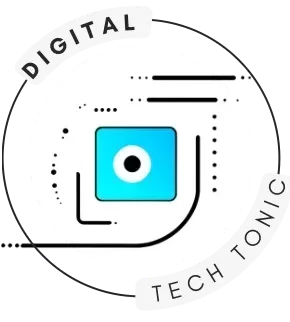AI has quietly moved from being a futuristic concept to a staple in many households. Devices like smart thermostats, security systems, and lighting are just the tip of the iceberg. These AI-driven inventions use algorithms to learn habits and preferences, making everyday tasks more seamless. We find this automation particularly evident in virtual assistants like Siri, Alexa, and Google Assistant, which offer help with scheduling, reminders, and information without batting an eye.
AI in Everyday Life
Ever noticed how well your shopping or entertainment platform knows what you like? It’s AI at work here too, analyzing data to personalize experiences just for you. Whether it’s suggesting your next binge-watch series or finding the perfect pair of shoes, AI applies a personal touch that can feel almost like having your own personal shopper on standby.
Consumer convenience is another area where AI is flexing its muscles. It’s changing how we shop, handle finances, and even plan our daily activities. Automated payment systems, personalized banking advice, and smart shopping carts are transforming the customer experience, taking convenience and ease to uncharted territories.
The presence of AI in everyday life is a testament to how technology is making routines more manageable and life a tad bit more comfortable. It’s evolving from a background helper to a front-and-center partner in crafting a more efficient lifestyle. Yet, it’s important to keep in mind the balance between embracing these innovations and maintaining control over personal data and privacy. As AI continues to evolve, understanding and navigating its role will become an invaluable skill for everyone living in this highly digital age.
AI in Healthcare and Education: Transforming Lives
AI is making giant strides in revolutionizing healthcare. In diagnostics, AI systems can analyze images and identify diseases with stunning accuracy. This tech is lending a hand to doctors, speeding up diagnoses and improving treatment plans. We’re seeing a future where personalized health apps become commonplace, focusing on individual patient needs and predicting health trends before they escalate.
The world of education is also feeling AI’s touch. Personalized learning platforms are adapting to students’ unique learning styles, helping everyone learn at their own pace. Virtual tutors and AI tools for content creation are popping up, making learning more engaging and accessible than ever before. AI seems poised to break down barriers, bringing quality education into the homes of many, regardless of geographic location.
Globally, AI’s potential in healthcare and education is enormous. It promises to enhance access to essential services, particularly in underserved regions. Imagine remote areas having access to top-notch diagnostics and educational resources that were once out of reach. But with great power comes great responsibility. It’s crucial to navigate these advancements while keeping ethical practices and equitable access in mind.
The journey of integrating AI into healthcare and education is not without hurdles. There’s a need for careful consideration of data privacy and ethical standards to make sure these powerful tools work to everyone’s benefit and don’t compromise personal rights. Staying informed and actively participating in discussions about AI in these fields will help shape a future where technology serves as a catalyst for positive change.
AI’s Impact on Business and Workplace Efficiency
AI is reshaping how businesses function, streamlining processes, and driving productivity. Automated systems take over repetitive tasks, freeing up time for employees to focus on creative and strategic work. This shift allows businesses to achieve more with less, optimizing resources and fostering innovation.
In the realm of decision-making, AI excels at crunching numbers and analyzing vast amounts of data. It provides insights and forecasts that lead to smarter, faster choices. By integrating AI, companies can respond more agilely to market demands, staying a step ahead of the competition.
Remote work has become a norm for many, and AI is enhancing this shift. Tools powered by AI facilitate virtual collaboration and project management, sustaining productivity across teams regardless of location. These technologies are vital in keeping workflows smooth and ensuring that geographical barriers don’t hinder progress.
Cybersecurity, a critical concern for modern enterprises, sees significant improvement with AI. These systems can recognize patterns and detect threats in real-time, offering robust protection against breaches. AI equips businesses with the ability to swiftly address security challenges, safeguarding sensitive data and maintaining user trust.
Yet, the adoption of AI in the workplace brings with it ethical dilemmas and workforce implications. As companies increasingly rely on AI, they must consider the impact on employment and continuously update skills. Staying informed and adaptable to these changes is crucial for both individuals and organizations.
By thoughtfully integrating AI, businesses can not only boost their operational efficiency but also create an environment where human skills are complemented by technological advancements. It’s about fostering a synergy that empowers people and drives success in this new digital landscape.
AI in the Creative and Sustainable Fields
Artificial Intelligence is making waves in the creative industries, where it’s being leveraged to generate art, music, and other forms of content. With AI, artists and creators can explore new boundaries and experiment with different styles, sometimes creating pieces that challenge traditional norms. While some marvel at this innovation, others raise concerns about originality and the displacement of human creativity.
In the realm of sustainability, AI is becoming an invaluable ally. It’s being used to improve energy efficiency and aid climate modeling, offering insights that help mitigate environmental impacts. From optimizing power grids to forecasting weather patterns, AI contributes substantially to eco-friendly solutions.
There’s a growing movement towards ‘Sustainable AI,’ which focuses on developing environmentally-conscious AI technologies. This effort not only aims to reduce the carbon footprint of AI itself but also must consider the long-term impact on natural resources and ecosystems.
However, incorporating AI into these fields poses ethical questions. Society must weigh the benefits of AI’s creative contributions against potential drawbacks, such as job displacement or over-reliance on technology. Transparency in AI processes and decision-making becomes vital.
Empowering creativity while maintaining ethical standards calls for a balanced approach. It’s important to stay engaged in these discussions, ensuring that as AI evolves, it benefits both the creative process and the planet. As we blend human insight with AI’s capabilities, the potential for sustainable growth and responsible innovation becomes boundless.
The Future of AI: Navigating Opportunities and Challenges
As AI technology progresses, we’re on the brink of exciting advancements such as quantum computing and Artificial General Intelligence (AGI). These innovations promise to transform industries, solving complex problems at unprecedented speeds and offering insight into long-standing issues. Quantum computing, for instance, has the potential to revolutionize everything from drug discovery to financial modeling.
However, these advancements come with significant challenges. Ethical concerns and data privacy issues become more pressing as AI becomes more embedded in our lives. The potential risks are substantial, ranging from personal data breaches to broader concerns about AI in security roles.
As AI systems become more autonomous, ensuring ethical alignment with human values becomes critical. Questions around bias, accountability, and transparency demand careful consideration as these technologies continue to evolve. Personal data security and user consent must also be prioritized, ensuring that individuals maintain control over their information.
Simultaneously, the potential for human-AI collaboration offers a promising future. AI can serve as an augmentative tool, enhancing human capabilities and fostering creativity and innovation across various fields. This partnership could unlock new levels of productivity, as AI takes over mundane tasks and frees humans to focus on more complex challenges.
The road ahead requires a nuanced approach, balancing innovation with responsibility. Staying informed, advocating for ethical standards, and actively participating in shaping AI’s trajectory could help harness its full potential while minimizing risks. By working together and fostering a dialogue between technologists, policymakers, and the public, we can guide AI’s evolution for the greater good.
Conclusion
Artificial Intelligence is already influencing our lives in countless ways, reshaping industries and redefining norms. From healthcare advancements and creative endeavors to business efficiencies and sustainability efforts, AI is carving out a new path forward.
The key to navigating this transformative journey lies in staying informed and adaptable. It’s about embracing these technologies while being mindful of the ethical and societal implications. Recognizing both the opportunities AI presents and the challenges it entails will ensure a balance between innovation and responsibility.
For individuals and organizations alike, continuous learning and engagement are critical. Being proactive in understanding AI’s evolving role ensures that we can leverage its benefits while managing its risks. This involves advocating for policies that prioritize transparency, equity, and privacy, fostering an environment where technology serves humanity’s best interests.
By building a solid foundation rooted in trust and ethical integrity, we can steer AI’s development towards a future filled with promise and possibility. Encouraging open conversations and collaborations across sectors will be crucial, as we collectively guide AI’s integration in ways that enhance life around the globe.


